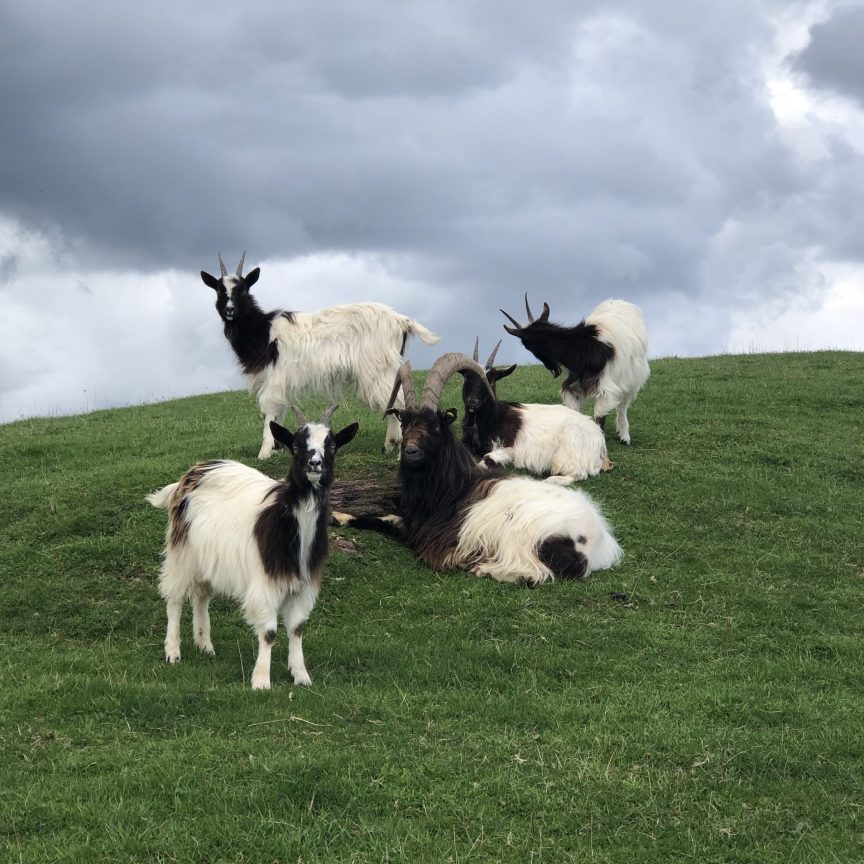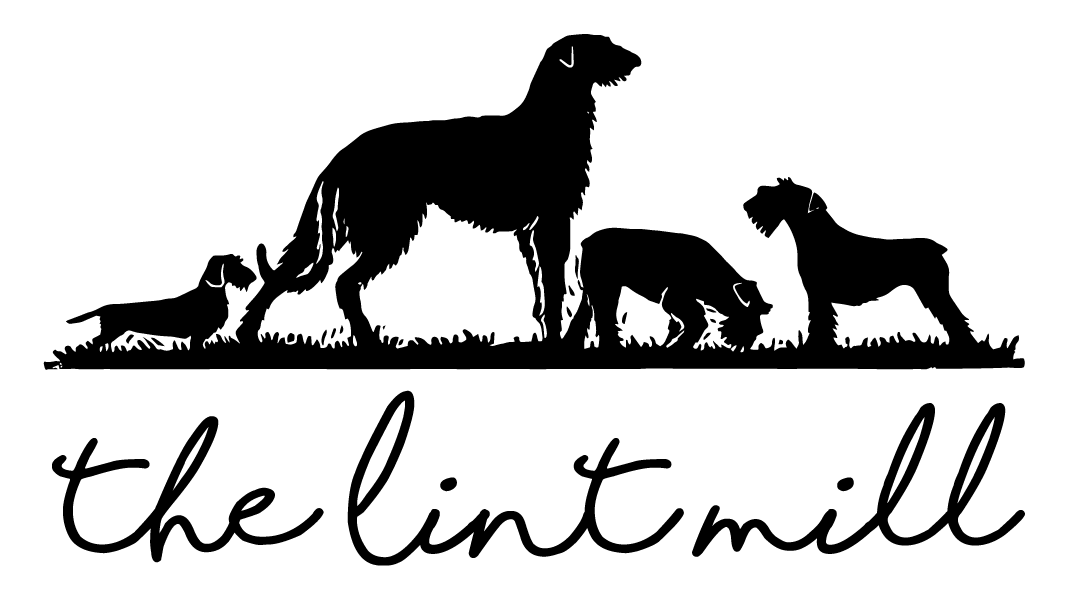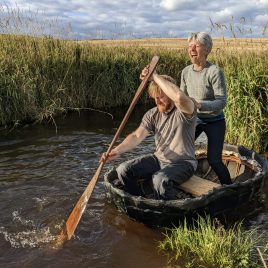
Our Greatest Gladness
Every time we run one of our ‘A Beginner’s Guide to Organic Smallholding’ courses we cherish the moment of introductions, where the participants share with us their hopes and dreams for their smallholding futures. It’s a precious and vulnerable moment hearing those ideas voiced, for some people it’s for the first time.
It returns Colin and I to the very same moment in our early days, when we tentatively suggested to each other that we might keep sheep. It also returns us to our values, why we do what we do in the way that we do it. It compels us to articulate why our life at The Lint Mill is so much more than ‘running a smallholding’, ‘running a B&B’, or ‘running courses’. It reconnects us very directly with our purpose.
Over the years we have written that purpose down and although we return to it regularly, there’s nothing like running another course to check if it all holds true.
Being certified organic by the Soil Association and holding a Green Tourism Gold Award for sustainable tourism means we open ourselves up to scrutiny, means we must articulate and evidence to others how that purpose manifests itself in practice. In the latest version of our eco policy, ‘Living a Regenerative Life’, we document our holistic approach to our lives and business. We say, ‘we understand that our rewards are measured not just financially but in our physical health, our mental well-being and the welfare of the animals we share our lives with.’
This is hugely important to us. We are honest with our course participants and admit that even if the cost analysis looks as though a particular venture will not generate much additional income, we must balance that knowledge with the benefits we experience in other ways.
Take the herd of Bagot goats we breed for example. Unlike other breeds of goat, they are not used for producing milk or meat. They are on the RBST Watchlist and categorised ‘at risk’, so we do keep them to contribute to the safeguarding of this rare breed. We believe in genetic diversity and in this world dominated by monoculture in every arena, preserving our native breeds has never been more crucial. And they do eat our thistles and nettles! We occasionally sell stock to other breeders which generates some income to offset the expenditure. But honestly, they mainly give us joy. Joy everyday as we look out across the fields and see the happy intergenerational herd living their contented lives with us. Joy as they run to the daily bucket of feed. Joy in watching the tiny kids frolicking around the nursery paddock. It turns out that it’s very hard to put a price on this joy. However, the rewards of experiencing joy in this every day way are evident in the positive effect it has on our mental well-being. Our Bagot goats just make us happier.
So, we encourage others to look holistically at what they want from their smallholding life, to factor in rewards that aren’t easily quantified in pound notes but to be mindful that beauty doesn’t pay the bills. We all want our lives to be financially secure but balancing the books isn’t just about the numbers. We encourage our participants to look at Alan Savoury’s process of defining objectives and goals within the whole context of your own and your family’s material, physical and spiritual needs. Recognising our own unique context and our needs within that requires discussion, thrashing out and writing down. Alan Savoury has written extensively on this and offers this format,
‘The holistic context is described (and written down), using a specific format:
1. How do people want their lives to be, based upon what they value most – culturally, materially and spiritually;
2. What has to be produced to live such lives (and purpose if required); embedded in,
3. A description of their resource base as it would have to be to enable people hundreds of years from now to be living such lives.’
There are other ways to think about and begin to articulate your purpose and my favourite is the one offered to me by my friend and mentor David Key during my Natural Change training. Paraphrasing Frederick Buechner, he says, ‘look at where your greatest gladness meets the hunger of the world – that’s where you will find your purpose’. And it really isn’t a bad place to start whether you are a smallholder or not.



